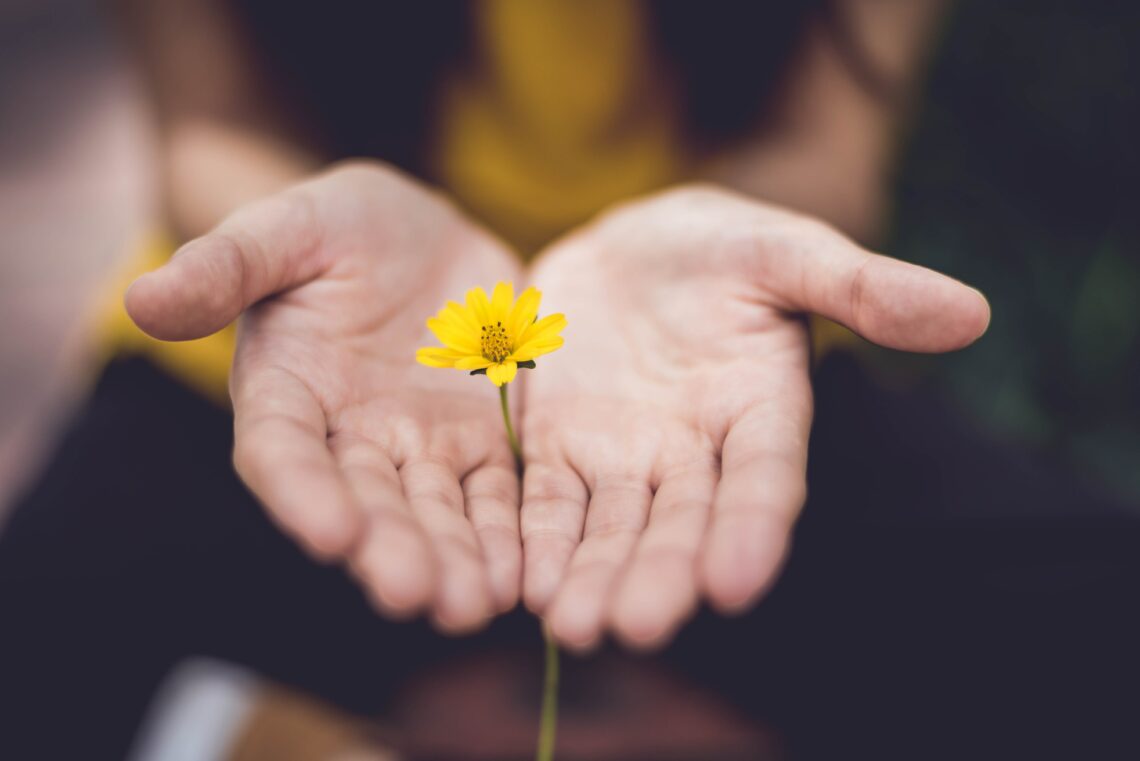
Is There Hope After a Struggle with Pornography?
What’s one thing you would say to a woman who is listening who struggles with pornography and wonders if there is hope?
I have been asked that question countless times over the last few months as I’ve been on various podcasts and radio shows talking about my book, Quenched. So many presenters and hosts want to leave their listeners with a soundbite that offers a glimmer of hope.
I’m always happy to provide it and to share that there was a point in my own story (several, actually) where I felt hopeless. At 17, I felt like I was too far gone to ever be rescued. I would never be free from my struggle with pornography. At 27, even though I was free, I began to question if my life would “go” anywhere. Would I be single forever? So I love to share that the message of grace is a message of hope. I sit here nearly 20 years after those dark days in Christian college when I sent nudes to a complete stranger, happily married, a mom to two amazing kids, with one more on the way, amazing opportunities for ministry, and more.
So, yes, there’s hope.
But being asked the question over and over again has made me ask a different question:
Why do we even question if there is hope?
I think it says something for the gravity of this struggle and the conversation surrounding it if it causes us to question whether we can ever be free or have hope.
Hope and freedom are at the heart of what it means to be a Christian. They are at the heart of the Gospel.
And yet those of us who claim to know Christ and to love and follow Him can be so ensnared by our struggles and so hemmed in by the narratives around us that we begin to wonder.
Can life ever be good again?
Will these images ever go away?
Am I ever going to shake this?
Will anyone ever love me?
Will I ever be able to outrun the shame?
Could our marriage actually survive?
Will I ever feel normal?
I want to challenge you for a moment to dig a little deeper.
These are surface fears and questions. The symptoms of a fracture that extends far below. It’s the equivalent of asking if we can paint over mold without first figuring out where the mold is coming from and fixing that.
Ask yourself why you feel life could never be good again. Ask yourself why you fear no one could ever love you.
And if you’re honest, I would guess that the answer can tie back to a flawed belief about God, grace, and/or sin. This desperate quest for hope, to me, seems to ultimately be a question of “God are you really big enough for this?” Because we are surrounded by messaging that seems to suggest otherwise.
When I first started looking for help twenty years ago, I stumbled across a group that labeled the sin of pornography “greater than the sin of Adam.” To this group pornography was absolutely the worst thing a person could ever do. Worse than flinging all of humanity onto a collision course with eternal separation from God.
That’s heavy. It’s also flawed.
But if you’re someone looking for help, you’ve likely seen statements similar to this. Some anti-porn groups, in an attempt to motivate people out of their porn use overemphasis the harmful effects of pornography and, unintentionally, make people feel hopeless.
They share that one thing serial killers have in common is their use of pornography. What started as an accidental exposure in fifth grade now has you fearing you’re two steps away from being the next Aileen Wournos. You were looking for help and answers and instead got condemnation.
They talk about how pornography destroys marriages and share story after story of couples that were completely devastated by a spouse’s porn use and soon you’re a wife fearing for your own marriage.
They share the statistics about pornography and human trafficking and now you feel like you’re no better than the pimp down the street selling off underaged girls.
It’s really easy to fall into hopelessness when the messages around us are messages of condemnation and irreparable harm.
Christians can talk a lot about truth. We talk about how truth isn’t relative but absolute. We encourage people to go to the Bible for God’s view of ourselves, each other, sex, and so many other things. I want to encourage you to go to the Bible for the truth about sin and grace.
Because the entire storyline of the Bible is about a God who pursues and longs to bring a wayward people back to Himself. It’s all about the hope we have because of God’s grace (His goodness). Which is why, for me, it is so heartbreaking when people ask me to say something that can give them hope.
You don’t need me to say anything.
God promises it. God promises freedom. We see in the Bible that He makes us new creations, that He gives us abundant life, that He sets us free, that He makes us blameless, that we can renew our minds, that we can have peace and stability in life, that He will give us wisdom…
I could go on.
So when we question whether there is hope after a struggle with pornography, what we’re really asking is if God and all of His promises are accessible to us, and the answer is yes. There is no reason they wouldn’t be. Yet shame will tell us God is distant and wants nothing to do with us. This was the entire impetus behind writing Quenched– to tackle the shame that cuts us off from God. If shame can cut us off from God and make us reliant on other people for our comfort, hope, and stability, it’s winning.
A struggle with pornography is not a death sentence. If you’re wondering if there is hope for you, you don’t need to scour the internet to find someone who has been right where you are who can prove that things can change. Our ultimate source of hope is the character and person of God. Even if no one else in the world had ever been through what you’ve been through, even if no one else struggled with what you struggled with, it wouldn’t leave you without a way out. If you have Him, then there is always hope.




